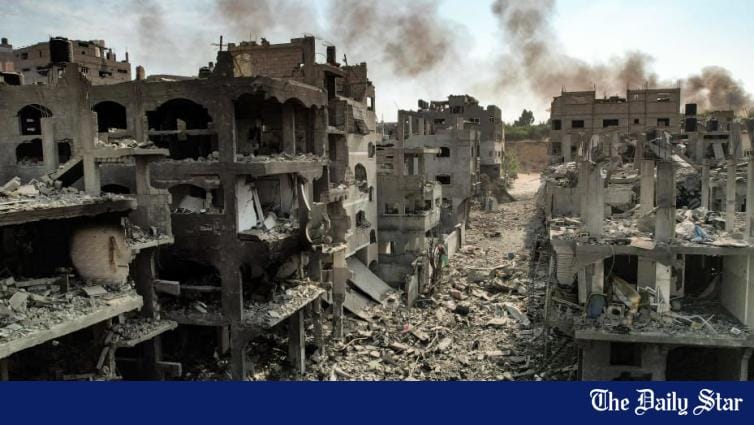Saif
Senior Operative
- 13,311
- 7,274
- Origin

- Axis Group

Foreign minister calls for greater OIC role to end Gaza atrocities
Foreign Minister Hasan Mahmud. File photo
Foreign Minister Hasan Mahmud called on the OIC member states to take alternate measures to end the conflict in Gaza and to ensure rights for the Palestinian people.
The foreign minister reiterated Bangladesh's firm support for the Palestinian cause and called for an immediate ceasefire and opening of humanitarian corridors in the besieged territory.
While addressing the 19th Extraordinary CFM of the OIC on Israel's' aggression on the Palestinian People in Jeddah, Saudi Arabia, he also stressed on the importance of the Islamic Financial Safety Net to ensure basic necessities for the Palestinians.
Foreign minister, mentioning the strong statement delivered by Bangladesh at the ICJ in February for the Palestinians, hoped that peace will be established soon in the region.
Noting the current stalemate at the United Nations Security Council, Foreign Minister highlighted the need for its reform so that decision on globally effecting issues could be reached.
He stressed the importance of Muslim Ummah's unity to stop atrocities against Palestinians, ensuring their safe and peaceful living in their homeland.
Earlier yesterday, Dr Hasan Mahmud paid a courtesy call on Saudi Foreign Minister Faisal bin Farhan Al Saud at the OIC Secretariat in Jeddah.
Expressing satisfaction at bilateral ties, Dr Mahmud hoped for deeper cooperation between Bangladesh and Saudi Arabia, anticipating a visit from Saudi Crown Prince Mohammed bin Salman.
Al Saud affirmed Saudi Arabia's commitment to sophisticated economic cooperation.
They discussed increasing sectoral cooperation, trade, and investment opportunities, with Dr. Mahmud seeking cooperation in crude oil purchase, which Al Saud promised to consider, including investments in refinery and petrochemical industries.
Al Saud congratulated Prime Minister Sheikh Hasina on her re-election and praised her leadership in hosting Rohingya refugees, pledging Saudi Arabia's full support.
Hasan Mahmud also met with OIC Secretary General Hissein Brahim Taha.
Taha praised Sheikh Hasina's leadership and reaffirmed OIC's support for Rohingya people.
The foreign minister advocated for greater trade and investment among OIC member states to mitigate economic challenges stemming from the Russia-Ukraine conflict, proposing a dedicated cell at the OIC Secretariat for trade-related information dissemination.





